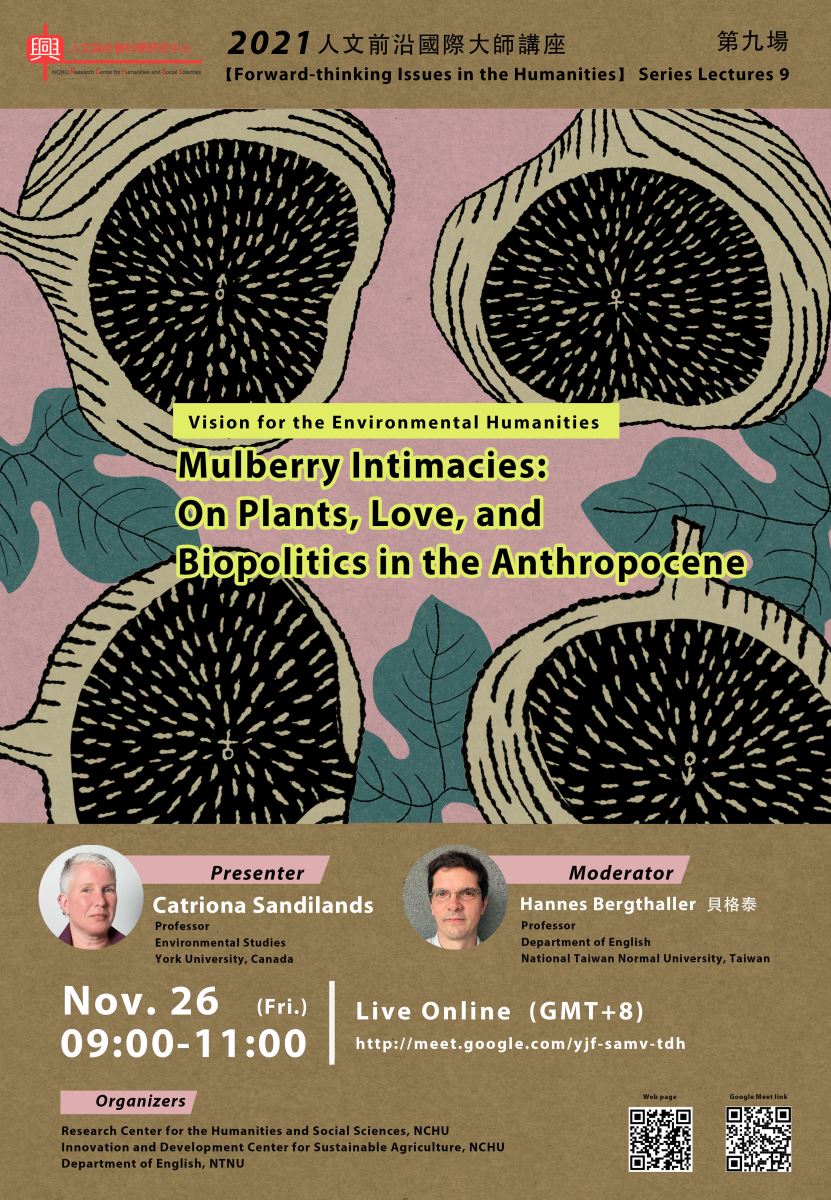邀請Catriona Sandilands教授(Environmental Studies, York University, Canada)進行【人文前沿國際大師講座】【展望環境人文】第九場演講。

講題│Mulberry Intimacies: On Plants, Love and Biopolitics in the Anthropocene
主講│Catriona Sandilands(Professor, Environmental Studies, York University, Canada)
日期│2021年11月26日(週五)09:00-11:00 線上直播
主辦│國立中興大學人文與社會科學研究中心
國立臺灣師範大學英語學系
主講人簡介:
Catriona (Cate) Sandilands is a professor in the Faculty of Environmental Studies, York University (Toronto). She is a fellow of the Pierre Elliott Trudeau Foundation, a former Canada Research Chair and past president of both the Association for Literature, Environment and Culture in Canada and the Association for the Study of Literature and Environment (US). She is internationally known for her work in the environmental humanities, including The Good-Natured Feminist: Ecofeminism and the Quest for Democracy (University of Minnesota Press, 1999), Queer Ecologies: Sex, Nature, Politics, Desire (Indiana University Press, 2010), and over eighty scholarly and popular articles, essays and stories.
演講摘要:
This presentation considers plant/human intimacies as important sites of feminist ecological inquiry. It tells two, connected stories about mulberries, Morus alba and Morus rubra, in Southern Ontario, Canada, and about how controversies surrounding the plants highlight the biopolitical regulation of interspecies intimacy as they intersect with historically-complex human intimacies, as well as showing possibilities for living otherwise. The first story considers mulberry species identity, which is the central axis of an “invasion” drama in which the reduction of the plants to their genomic identities is part of a larger policing of purity that is central to the racist logic of settler colonization that privileges the idea of a stable nature to be defended from change. The second considers the regulation of mulberry sexual expression, which is linked to questions of utility, to a colonial distrust of excess, and to the general impoverishment of multispecies intimacies in cities like Toronto. Thinking about the biopolitical re/organization of moricentric intimacies is a way of taking up possibilities for kinship in a manner that recognizes responsibility for the violences wrought by some institutions of intimacy, and that creates space for ethical kin-makings despite the uncomfortably intimate conditions in which we currently find ourselves in neoliberal capitalism.